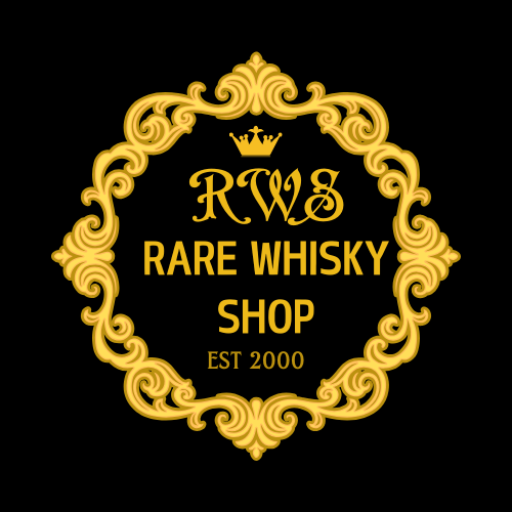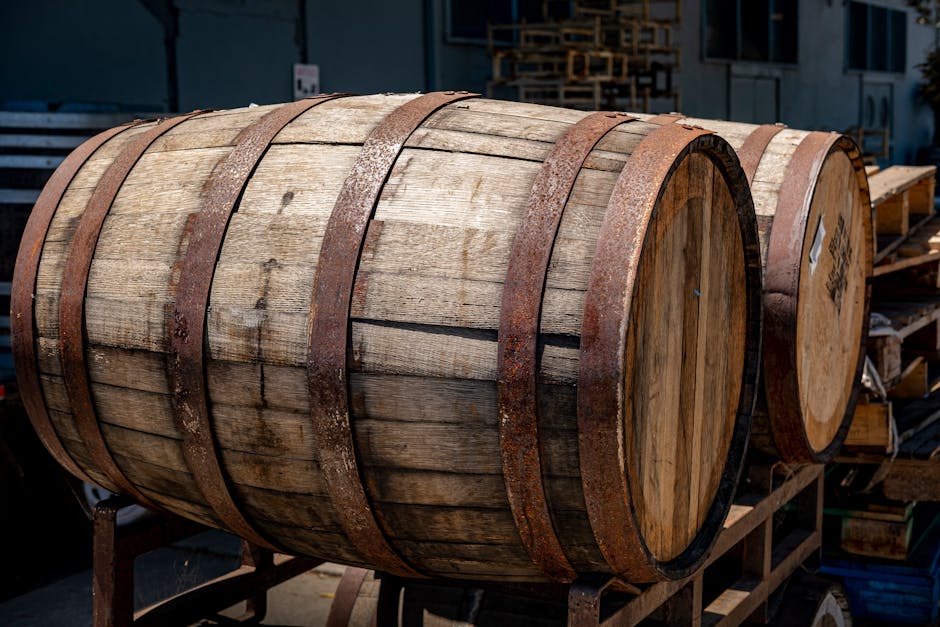Is Buying a Whisky Cask a Good Investment? Top 5 Pros
Is buying a whisky cask a good investment? Many seasoned investors are turning to whisky casks as a unique way to bolster their portfolios. Here’s a quick overview:
- Potential for high returns: Some cask investors have seen annual returns surpass 30%.
- Market demand: Mature whisky is increasingly rare, leading to higher price points.
- Diversification: As a physical asset, whisky casks offer a hedge against traditional market volatility.
- Risks involved: Requires long-term commitment and awareness of extra costs.
Amidst complex market dynamics, investing in whisky casks portrays an intriguing opportunity to diversify your investment portfolio. This form of investment taps into the physical asset market, often soaring in value as the liquid ages. However, returns aren’t instant and involve patience and strategic choice selection.
At Rare Whisky Shop, our experience spans curating the world’s most timeless and sought-after whiskies. Whether you are pondering is buying a whisky cask a good investment or seeking to enrich your collection, our expertise in exclusive whisky selections and market insights makes us an ideal partner for your investment journey.

Simple is buying a whisky cask a good investment glossary:
Is Buying a Whisky Cask a Good Investment?
Understanding the Market – is buying a whisky cask a good investment
Investing in whisky casks is becoming a popular choice for those looking to diversify their portfolios. But is buying a whisky cask a good investment? Let’s dig into the market dynamics.
Whisky casks are part of an alternative asset class. Unlike traditional investments like stocks or bonds, whisky casks are physical assets. This means they are not directly tied to market fluctuations, offering a potential hedge against economic volatility. The demand for mature whisky is growing, as older whiskies are increasingly rare and sought after. This rarity can drive up value, making it a potentially lucrative investment.

Potential Returns and Risks
Potential for high returns is one of the main attractions of whisky cask investments. Some investors have reported annualized returns exceeding 30%. This impressive figure highlights the potential for value growth as the whisky matures. The longer it ages in the cask, the more refined and valuable it becomes.
However, investing in whisky casks isn’t without its pitfalls. It requires a long-term commitment, often seen as a minimum 10-year investment. This is not a quick win. Patience is key, as is the strategic selection of casks. Not all casks will yield the same returns, and the investment landscape can be tricky to steer.

Fraud risks are another concern. It’s crucial to verify ownership and ensure that all transactions are legitimate. The absence of regulation by financial authorities means due diligence is essential. Look for brokerages with a valid WOWGR licence, which allows them to legally buy, sell, and store goods in HMRC-bonded warehouses.
In summary, the whisky cask market offers a unique opportunity for portfolio diversification, with the potential for significant returns. However, it also comes with risks that require careful management and a keen understanding of the market dynamics.
Factors Influencing Whisky Cask Investment
When it comes to whisky cask investment, several factors can significantly impact the value and potential returns of your investment. Understanding these can help you make informed decisions.
Importance of Distillery Reputation
The reputation of a distillery plays a crucial role in determining the value of a whisky cask. Well-known distilleries like Macallan are often more desirable due to their established brand and quality assurance. Whisky from reputed distilleries can command higher prices, especially as it ages. Investors often seek casks from these distilleries as they are more likely to appreciate in value over time.
However, buying casks from lesser-known distilleries can also be a strategic move. These casks might be more affordable initially and could offer substantial returns if the distillery gains recognition.
Monitoring Cask Quality
The quality of the whisky is paramount in cask investment. Several elements influence this, including cask size and the aging process. Larger casks may offer more whisky, but they can also affect the maturation rate and flavor profile. Smaller casks might yield a more intense flavor due to a higher wood-to-whisky ratio.
ABV levels (Alcohol By Volume) are another critical factor. Whisky must maintain a minimum ABV level to be classified as whisky. If the ABV drops too low, it can no longer be sold as whisky, reducing its value. Monitoring ABV levels is essential to ensure the whisky remains within the desirable range for aging.
Regular tasting samples are a practical way to assess the whisky’s quality and character. These samples provide insight into how the whisky is developing and can guide decisions on when to bottle or sell the cask. A cask’s quality can vary significantly over time, so consistent monitoring is key.
In conclusion, understanding the impact of distillery reputation and actively monitoring cask quality can significantly influence the success of your whisky cask investment. These factors, combined with strategic decision-making, can help maximize potential returns.
The Process of Investing in Whisky Casks
Investing in whisky casks can be a rewarding venture, but understand the process thoroughly. This includes being aware of the costs involved, storage and bottling requirements, and the legal aspects of ownership.
Costs and Fees
When considering is buying a whisky cask a good investment, it’s crucial to account for all associated costs. The initial purchase of the cask is just the beginning.
Bottling Costs: Once the whisky has matured, bottling it involves several expenses. These include the physical bottling process, labeling, and packaging design. Each step adds to the overall cost and can significantly impact your potential returns.
Taxes and Duties: Whisky investments are subject to various taxes. VAT (Value Added Tax) is typically 20% of the purchase price. Additionally, there’s a duty of £28.74 per litre of alcohol, plus VAT on that duty. These taxes can add up quickly, changing what seemed like a bargain into a costly affair.
Additional Expenses: Beyond bottling and taxes, there are other costs like storage fees and insurance. Storing whisky in bonded warehouses incurs fees, but it’s necessary to ensure the whisky matures correctly and remains secure. Insurance is also advisable to protect against potential losses.
Legal and Ownership Aspects
Understanding the legal side of whisky cask investment is vital to ensure you genuinely own your asset.
Ownership Verification: It’s essential to have a signed document acknowledged by the warehouse where the cask is stored. Without this, you cannot verify the existence of your cask, nor do you have full control over it. This document is your proof of ownership and is crucial for any future sales or claims.
WOWGR Licence: The Warehouse keepers and Owners of Warehoused Goods Regulations (WOWGR) licence is a key legal consideration. This licence, issued by HM Revenue and Customs, allows firms to legally buy, sell, and store goods in bonded warehouses. It’s vital to ensure that any brokerage or company you deal with has a valid WOWGR licence. This not only legitimizes their operations but also protects your investment.
Navigating the costs and legal aspects of whisky cask investment can be complex, but understanding these factors is crucial for a successful venture.
Next, we’ll explore frequently asked questions about whisky cask investment.
Frequently Asked Questions about Whisky Cask Investment
Is it worth investing in cask whisky?
Investing in cask whisky can be a unique and potentially rewarding opportunity. The allure lies in the whisky’s ability to increase in value as it ages. According to a report by KPMG, whisky is currently the most popular luxury asset among high-net-worth individuals, even surpassing art and jewelry. This increased interest suggests a growing market, which can be appealing to investors.
However, like any investment, there are risks involved. The market can fluctuate, and not all casks will appreciate in value. It’s crucial to research thoroughly, understand the market, and consult with experts before diving in.
Can you make money investing in whiskey barrels and is buying a whisky cask a good investment?
Yes, it’s possible to make money from investing in whiskey barrels, but success depends on several factors. The Knight Frank Luxury Investment Index showed a 322% increase in rare whisky bottle prices over a decade. This indicates that whisky investments can yield significant returns.
However, not every investment will be profitable. The quality of the whisky, the reputation of the distillery, and market demand all play a role in determining the potential return on investment. While some investors see double-digit returns, others may not be as fortunate.
How much does it cost to invest in a whiskey cask?
The cost of investing in a whiskey cask can vary widely based on several factors. The initial purchase price of the cask is just the beginning. For instance, casks from renowned distilleries like Macallan can be significantly more expensive due to their reputation and the quality of their whisky.
Additional costs include storage fees, which ensure the whisky matures properly in a bonded warehouse, and insurance to protect against potential losses. Bottling costs, taxes, and duties also add to the overall investment. For example, there’s a duty of £28.74 per litre of alcohol, plus VAT on that duty, which can quickly increase the total cost.
In summary, while investing in whisky casks can be profitable, consider all associated costs and risks. Understanding these elements will help you make an informed decision.
Next, we’ll conclude with strategies for successful whisky cask investment and explore the long-term potential of this unique asset class.
Conclusion
Investing in whisky casks can be a fascinating journey, offering both financial and personal rewards. But like any investment, success lies in having a solid strategy and understanding the long-term potential.
Crafting a Winning Investment Strategy
A well-thought-out investment strategy is key. Diversifying your portfolio with a mix of casks from various distilleries and ages can help spread risk and increase the potential for returns. Consider the cask size, distillery reputation, and aging process as crucial factors. These elements can significantly influence the value growth of your investment.
Regularly monitoring the quality of your cask is also vital. As whisky matures, its Alcohol By Volume (ABV) and taste profile can change. Ensuring the cask maintains a high ABV and desirable flavor profile can improve its value over time.
The Rare Whisky Shop Advantage and is buying a whisky cask a good investment
At Rare Whisky Shop, we pride ourselves on delivering the finest and most coveted whiskies. With decades of experience, we help investors steer the complexities of whisky cask investment. Our goal is to ensure you get the most out of your investment, both financially and in terms of enjoyment.
We offer expert guidance through each step of the investment process, from selecting the right casks to crafting an effective exit strategy. Our commitment to preserving tradition and delivering quality makes us a trusted partner in your investment journey.
Long-Term Potential
The whisky market continues to grow, driven by increasing global demand and the allure of owning a piece of whisky history. While the market has its risks, the potential for long-term gains is significant. Whisky, as a tangible asset, often holds its value even during economic downturns, offering a hedge against market volatility.
In conclusion, is buying a whisky cask a good investment? It can be, with the right approach and guidance. By partnering with experts like Rare Whisky Shop, you can open up the full potential of this unique asset class and enjoy the journey of whisky investment.
Ready to explore whisky cask investment? Visit our Whisky Investment Guide to get started.

